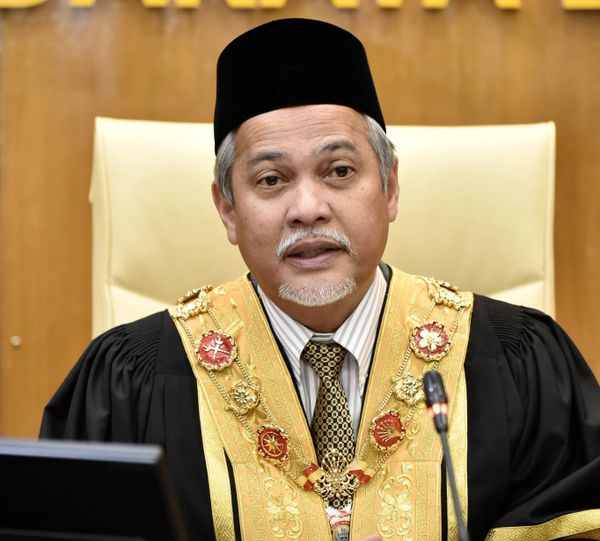By Aida Nyan
KLANG, July 30 — The Klang Royal City Council (MBDK) is implementing various strategic initiatives under the Crime Prevention Through Environmental Design (CPTED) concept to enhance the public’s perception of safety.
Klang Mayor Dato' Abd Hamid Hussain said that among the primary measures are installing barrier fences along pedestrian walkways on main roads, adding public lighting, and placing convex safety mirrors at blind spots.
“These barriers make it harder for criminals to act and escape, thereby offering greater protection for pedestrians,” he told the press after chairing a council meeting at MBDK's headquarters today.
Hamid was commenting on former Selangor police chief Datuk Hussein Omar Khan's recent remarks, who said that Klang was one of the districts recording the highest crime rates in Selangor, alongside Kajang and Gombak.
To monitor high-risk areas, the mayor said 507 closed-circuit television (CCTV) cameras have been installed, with 20 of them specifically placed at crime hotspots identified by the Royal Malaysia Police (PDRM), as well as at waste disposal sites and recreational parks.
The design of parks and public spaces is now structured to allow for natural surveillance by reducing concealed areas and narrow corners. This approach has also become a mandatory requirement in all new development approval plans.
Close collaboration is also maintained with PDRM through joint patrols, crime data sharing, and police participation in infrastructure committee meetings and community programmes.
MBDK is actively engaging residents through awareness programmes including safety talks and encouraging local Rukun Tetangga groups to reactivate their community patrols.
“Residents are the frontliners in this effort, and we need their cooperation to make Klang a truly safe city,” he said.
At the same time, Hamid urged locals to take personal safety measures and safeguard their property.
“Always lock your home, install CCTV systems at your residence, and use dashcams in your vehicles. Should anything happen, these recordings can assist the authorities in tracking down the culprits,” he said.
Hamid added that Klang’s high crime rate is also attributed to its vast area of over 500 square kilometres and a population exceeding one million people.
“With limited manpower, we need the collaboration of all parties, including premises owners, factories, and the community itself, to implement proper safety measures,” he said.
To better manage the movement and safety of foreign workers, MBDK is also reorganising their accommodation under the TLQ and CLQ systems to ensure a more orderly and monitorable arrangement.
Hamid also expressed full support for Hussein's proposal to install more CCTV cameras, as well as the use of drones and smart surveillance systems in commercial zones.
“We may deploy drones to monitor activities in those areas, particularly locations suspected of harbouring criminal hideouts. This would allow us to carry out surveillance and collaborate with enforcement agencies,” he said.
To reduce crime-prone areas, abandoned premises are also subject to enforcement action. Property owners are issued notices to carry out repairs or take necessary measures to prevent their properties from being used as criminal hideouts.




